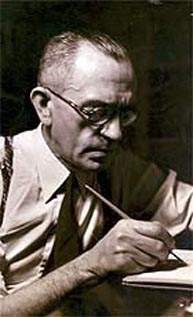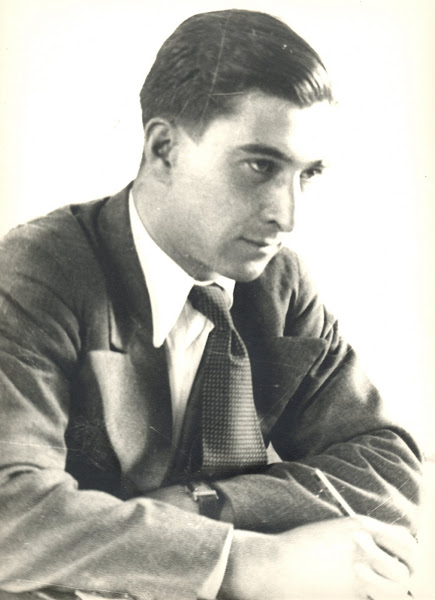She said, it hath reached me, O auspicious King, that Sindbad
the Seaman continued his relation of what befel him in the
Mountain of Diamonds, and informed them that the merchants
cannot come at the diamonds save by the device aforesaid. So,
when I saw the slaughtered beast fall (he pursued) and bethought
me of the story, I went up to it and filled my pockets and shawlgirdle
and turband and the folds of my clothes with the choicest
diamonds ; and, as I was thus engaged, down fell before me another
great piece of meat Then with my unrolled turband and lying
on my back, I set the bit on my breast so that I was 'hidden by
the meat, which was thus raised above the ground Hardly had I
gripped it, when an eagle swooped down upon the flesh and,
seizing it with his talons, flew up with it high in air and me clinging thereto, and ceased not its flight till it alighted on the head of one of the mountains where, dropping the carcass he fell to rending 20 AIf Laylak wa Laylah.
It ; but, behold, there arose behind him a great noise of shouting
and clattering of wood, whereat the bird took fright and flew away.
Then I loosed off myself the meat, with clothes daubed with blood
therefrom, and stood up by its side ; whereupon up came the
merchant, who had cried out at the eagle, and seeing me standing
there, bespoke me not, but was affrighted at me and shook with
fear. However, he went up to the carcass and turning it over,
found no diamonds sticking to it, whereat he gave a great cry and
exclaimed, "Harrow, my disappointment ! There is no Majesty
and there is no Might save in Allah with whom we seek refuge
from Satan the stoned !
" And he bemoaned himself and beat
hand upon hand, saying,
"
Alas, the pity of it ! How cometh
this ?
" Then I went up to him and he said to me,
" Who art
thou and what causeth thee to come hither ?
" And I,
" Fear not,
I am a man and a good man and a merchant. My story is a
wondrous and my adventures marvellous and the manner of my
coming hither is prodigious. So be of good cheer, thou shalt
receive of me what shall rejoice thee, for I have with me great
plenty of diamonds and I will give thee thereof what shall suffice
thee ; for each is better than aught thou couldst get otherwise. So
fear nothing." The man rejoiced thereat and thanked and blessed
me ; then we talked together till the other merchants, hearing me'
in discourse with their fellow, came up and saluted me ; for each
of them had thrown down his piece of meat. And as I went off
with them I told them my whole story, how I had suffered hardships
at sea and the fashion of my reaching the valley. But I
gave the owner of the meat a number of the stones I had by me,
so they all wished me joy of my escape, saying,
" By Allah a new
life hath been decreed to thee, for none ever reached yonder
valley and came off thence alive before thee ; but praised be Allah
for thy safety!" We passed the night together in a safe and
pleasant place, beyond measure rejoiced at my deliverance from
the Valley of Serpents and my arrival in an inhabited land ; and
on the morrow we set out and journeyed over the mighty range
of mountains, seeing many serpents in the valley, till we came to
.a fair great island, wherein was a garden of huge cam ohor trees
under each of which an hundred men might take shelter. When
the folk have a mind to get camphor, they bore into the upper
part of the bole with a long iron ; whereupon the liquid camphor,
which is the sap of the tree, floweth out and they catch it in
vessels, where it cmcreteth like gum; but, after this, the tree
The Second Voyage of Sindbad the Seaman. 31
dieth and becometh firewood.1 Moreover, there is in this island a
kind of wild beast, called "Rhinoceros," 2 that pastureth as do
steers and buffalos with us ; but it is a huge brute, bigger of body
than the camel and like it feedeth upon the leaves and twigs of
trees. It is a remarkable animal with a great and thick horn, ten
cubits long, amiddleward its head ; wherein, when cleft in twain,
is the likeness of a man. Voyagers and pilgrims and travellers
declare that this beast called " Karkadan "
will carry off a great elephant on its horn and graze about the island and the sea-coast
therewith and take no heed of it, till the elephant dieth and its fat,
melting in the sun, runneth down into the rhinoceros's eyes and
blindeth him, so that he lieth down on the shore. Then comes
the bird Rukh and carrieth off both the rhinoceros and that which
is on its horn to feed its young withal. Moreover, I saw in this
island many kinds of oxen and buffaloes, whose like are not found
in our country. Here I sold some of the diamonds which I had
by me for gold dinars and silver dirhams and bartered others for
the produce of the country ; and, loading them upon beasts of
burden, fared on with the merchants from valley to valley and
town to town, buying and selling and viewing foreign countries
and the works and creatures of Allah, till we came to Bassorahcity,
where we abode a few days, after which I continued my*
journey to Baghdad. And Shahrazad perceived the dawn of
day and ceased to say her permitted say.






.jpg)
